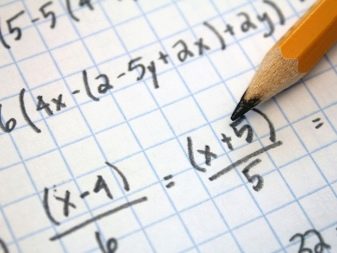What is the difference between a profession and a specialty?

Every person is familiar with the terms "profession" and "specialty", but when the question arises, what is the difference between them, even an adult will not be able to immediately give a logical answer. The words of teachers in educational institutions appear in my memory, but the formulation of concepts remains inaccurate and does not fully reveal the essence. Boys and girls are also well aware of these words - they are very often used in communication.
In particular, the terms become important when it comes to graduates, because it is time for career guidance for them. Therefore, we have prepared an article for you that will help you understand the essence and difference of these two concepts, as well as help you use them correctly in a conversation.

Definition of the concept of specialty
This is a rather narrow concept that denotes an in-depth study of a profession. In fact, this is an offshoot of one specific technology, science, subject or craft, such in-depth knowledge allows you to occupy special positions. Only those people who have mastered the necessary education, acquired qualifications and skills for future work, and also received a diploma, certificate or certificate confirming knowledge and skills can obtain a specialty. A specialty can be interconnected with several categories of professions at once, because specialization is a narrow direction of training in a certain craft.
To make it easier to understand the difference between a specialty and a profession, let's delve into the categories of employment. First, it is necessary to clarify that there are several types of professions, we will consider one of them - technical - in more detail.The general concept of the technical profession is divided into many specialties: turners, web programmers, engineers, or auto mechanics. While studying at the faculty, all these areas are connected by some common subjects, such as computer science, physics and mathematics. The study of the exact sciences is common to all professions, but when divided into specialties, many in-depth subjects appear. During specialization, the departments of architects and mechanics teach completely different programs, although they remain in the same occupation category.
In the same way, you can describe any other category of education, because a profession is a general concept, and specialization is a set of branches and subcategories of a profession. Here are some examples of the relationship between these two concepts:
- the profession of a doctor contains the following specialties: dermatologist, phthisiatrician, traumatologist, cardiologist, nurse, infectious disease specialist and others;
- the teacher's work is divided into a list of different disciplines - geography, history, biology, mathematics, physics, economics or jurisprudence;
- the employment category of locksmiths is divided into several subcategories - plumber, car mechanic, mechanic, toolmaker, emergency repair locksmith;
- Programmer education has many ramifications such as web developer, project director, program tester, C ++ or Delphi programmer.

When choosing a college, university or university, you will be familiar with two interrelated terms such as "specialization of study" and "direction of study."
For a better understanding of the essence of the specialty, let us take a closer look at these two expressions. The specialization of training means a set of skills, abilities and information that a graduate of a higher educational institution will possess. The knowledge gained will allow you to work in a specific field of activity related to the acquired qualifications.
The direction of education differs from specialization in that it covers more knowledge of professional activity. Simply put, if the specialization studies in depth only one subspecies of the profession, then the direction studies the interrelated area of the subcategories. There are also terms such as "area of expertise" and "group of specialties." They divide the sciences into several categories such as natural, humanities, educational, and technical.
This system of classification of specialties is present only in higher education institutions.

What is a profession?
The term “profession” refers to work activities that require specialized education and practical training. Professional activity requires the employee to possess certain knowledge and skills that are acquired in special educational institutions or during independent practical training. You can also master a profession and improve your qualifications at enterprises that agree to train new employees.
Let's take a closer look at the essence of this concept.
- The term denotes a list of skills, abilities and competencies that a particular person possesses. The word is used in different expressions, for example, "The daughter graduated from the university and acquired the profession of a veterinarian" or "His profession is a teacher."
- The community of professionals is a circle of people engaged in a specific activity, and it is a similar profession that links them together. Such people have similar goals, skills, interests and qualifications.
- The profession that a person needs has a rather narrow range of work - this makes life easier, improves the quality of work and opens up the opportunity to develop and travel. Such a limited nature of the activity is due to the introduction of the division of labor - it is not necessary to study many professions, because there is an opportunity to order services or buy goods created in mass production.
- Occupation - This context describes the profession as a kind of work.
As mentioned above, employment is divided into several types, based on the general area of use, similarities in educational base and learning outcomes. The categories are teaching, medical, construction, technical and economic. Each type contains many different professions, for example, economist, architect, teacher, doctor, translator or lawyer. Each category of occupation undergoes in-depth specialization - this means a detailed study of some of the nuances of the branch of the profession. For example, the general medical direction is divided into a huge number of specialties, such as surgeons, therapists, dentists, psychiatrists, and many others.

The main differences
From what you have read, you can understand that the main difference between the two terms lies in the amount of information. Specialty is a narrow area of education in the subcategories of occupations. The term "profession" differs in that it broader reveals the directions of study, this concept is general, without going into specifics. The difference between these two concepts is clearly illustrated by examples of specialization in different professions, for example, the general name "doctor" hides subcategories of pediatricians, ophthalmologists, laboratory assistants, venereologists or orthopedists.
Also, an important difference is that to acquire a profession, it is enough to engage in practical exercises or training. In this way, you can learn a simple job - be a waiter, salesperson or cleaner. But in order to obtain a specialty, an applicant must undergo training at a college or university and receive a document confirming his qualifications. The diploma on improving the level of knowledge will not be valid everywhere - it gives advantages only in areas limited by the document. Specialization strongly depends on the position you would like to take: often leadership positions require in-depth knowledge in their field of activity.
Once you understand the terms "specialty" and "profession", it will also be wise to familiarize yourself with related concepts such as "specialization", "qualifications" and "position". If you study all the expressions in detail, when searching for an educational institution during a conversation, you will definitely not get confused in words.

Let's get acquainted with the terminology in more detail.
- Specialization - the term refers to the process itself, during which a student obtains qualifications within the framework of his department. Here are some examples of the specialization of doctors:
- for therapists, this is a deepening into the study of diseases of the respiratory tract, gastrointestinal tract and cardiovascular system;
- for ENT - training in diagnostics of pathology of the ears, nose, throat, neck and head;
- for a traumatologist - gaining knowledge on the treatment of diseases and injuries of the human musculoskeletal system.
- Qualification - This is the level of skill acquired by a student or employee in the course of training or work. The degree of professional knowledge can be improved throughout life with the help of special training courses. This is true for those professions that change a lot due to progress.
- Position - this concept denotes the position that an employee occupies in an enterprise or institution. Depending on the position, the employee must fulfill certain labor duties prescribed in the employment contract.
To consolidate the knowledge gained about the terms, we suggest reading the phrase containing each of them: “Antonina graduated from college with a degree in“ subject teacher ”and passed the specialization“ primary school teacher ”, then received the qualification“ teacher of mathematics ”and got a job at school for a position "Math teacher" by profession "teacher".










